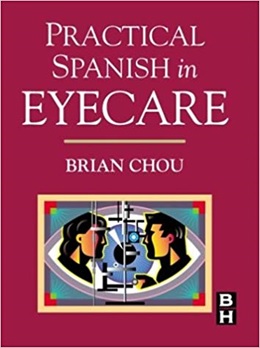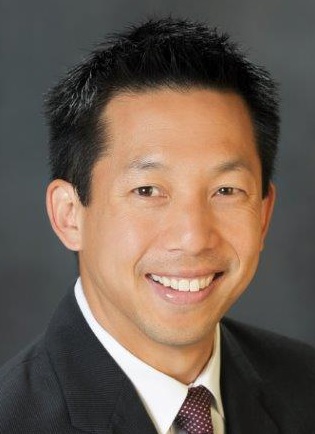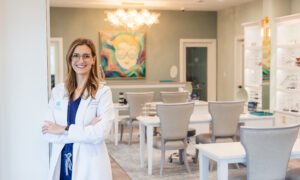By Brian Chou, OD, FAAO

Jan. 23, 2019
Your career as an optometrist sometimes takes unexpected turns. In the course of seeing patients and growing your practice, you may find the spark for a new idea that leads to a surprise pursuit.
This is the unlikely story of how I started Spanish-English translation guides for optometrists, dentists, veterinarians and chiropractors. I recognize the irony of what I accomplished. I’m not Hispanic and my command of the Spanish language is shaky, at best. Perhaps this will inspire persistence in your own personal and professional endeavors.
 In 1998, with one year of high school and one year of college Spanish coursework under my belt, I struggled during my fourth-year optometry school clinical externship in Salinas, Calif. Most of the patients I helped were native Spanish speakers working in local agriculture. I was uncomfortable stumbling through my clinic day with my limited Spanish.
In 1998, with one year of high school and one year of college Spanish coursework under my belt, I struggled during my fourth-year optometry school clinical externship in Salinas, Calif. Most of the patients I helped were native Spanish speakers working in local agriculture. I was uncomfortable stumbling through my clinic day with my limited Spanish.
At the time, there was a dearth of industry-specific Spanish-English translation tools. I started taking notes of Spanish phrases that helped me conduct an eye exam. My notebook soon filled up. I continued adding to it in the year that followed while providing eyecare for under-served Hispanics through the charitable groups, Los Médicos Voladores and Hospital de la Familia.
Soon, I realized that what I had compiled could help other eyecare professionals and their Spanish-speaking patients. I approached a medical editor for the publisher, Butterworth-Heinemann, and pitched my idea of publishing a Spanish translation guide for eyecare. The proposal fell flat. The editor felt that it was too risky. Undeterred, I proposed relinquishing the author royalty since my goal was to help the profession and under-served Hispanic communities. Fortunately, Butterworth-Heinemann accepted.
Other Articles to Explore
Almost two years from inception, “Practical Spanish in Eyecare” was published in 2001. The guide sold surprisingly well, especially at trade shows. Elsevier subsequently acquired Butterworth-Heinemann, and Elsevier’s editors asked me to expand my work into a second edition with a companion audio disc.
In 2005, “Spanish Terminology for the Eyecare Team” was published, and it also enjoyed good sales. The success of my first and second edition translation guides motivated Elsevier to bring forth companion guides on their own for dentists, veterinarians and chiropractors. I am incredibly fortunate and grateful to leave a legacy much greater than I ever imagined.
Today, both “Practical Spanish in Eyecare” and “Spanish Terminology for the Eyecare Team” are out of print. I do not know if Elsevier has plans to run another printing. Meanwhile, there are sellers on Amazon selling these books used, sometimes for ridiculously high prices.
In retrospect, I attribute the success of my Spanish guides to the Dunning-Kruger effect, the cognitive bias where people believe they are smarter and more competent than they really are. Early in my career, I was too inept to realize my limitations, not realizing that authors of foreign language guides should be proficient in the foreign language.
My point is this: Yes, boldly pursue that idea of yours. As the ice hockey legend, Wayne Gretzky, said, “You miss 100 percent of the shots you don’t take.” Go ahead, take that shot!
Are there ideas for new pursuits that you’ve been putting off working toward? Are there any that you have successfully seen through? What advice can you give other ODs on taking a chance, and pursuing a new idea?
 Brian Chou, OD, FAAO, owns ReVision Optometry in San Diego, Calif.
Brian Chou, OD, FAAO, owns ReVision Optometry in San Diego, Calif.



























